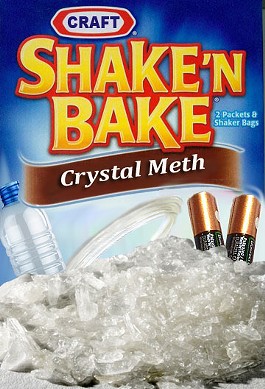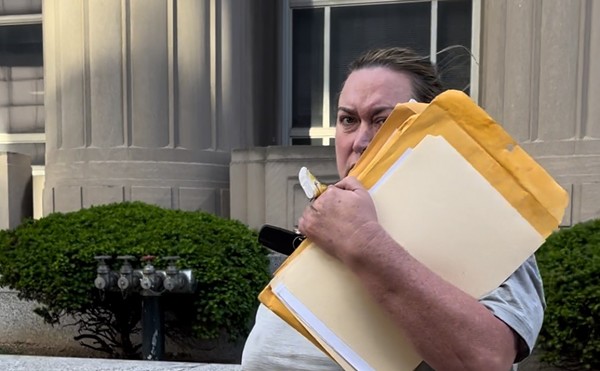Yeah, well, um, here's the thing: it doesn't work worth a damn. Once again, the Show-Me State is on pace to lead the nation in the number of meth labs seized by police.
While electronic tracking undoubtedly makes life more challenging for the state's enterprising meth cooks, the system does virtually nothing to prevent "smurfing" -- going from one pharmacy to another throughout the day -- or keep meth cooks from buying the small amount of cold pills they need to make meth via the "shake and bake" or "one pot" method.
So what's the solution?
According to Ron Bovett, a district attorney in Lincoln County, Oregon, we need to make pseudoephedrine a prescription-only drug. Bovett penned an op-ed in yesterday's New York Times titled "How to Kill the Meth Monster."
Oregon did more than four years ago, enabling the state to eliminate smurfing and nearly eradicate meth labs. This is part of the reason that Oregon recently experienced the steepest decline in crime rates in the 50 states.Here are the stats Bovett cites on electronic tracking:
Earlier this year, Mississippi also passed a law requiring a prescription to get pseudoephedrine. Since July, the number of meth labs in that state has fallen by 65 percent.
In Kentucky, an electronic tracking law that went into effect in 2008 has had no effect on the number of meth labs there, and only 10 percent of them are found by electronic tracking. The number of police incidents involving meth labs has actually increased by more than 40 percent.And those worried about not being able to relieve stuffy sinuses if such a ban were enacted ought to keep this in mind:
These pseudoephedrine prescription requirements apply to only 15 pharmaceutical products and their generic equivalents -- medicines like Sudafed 12 Hour, Aleve D and Advil Cold and Sinus. Most cold and allergy medicines on store shelves are not affected, because they contain no pseudoephedrine.Go read the whole article .






